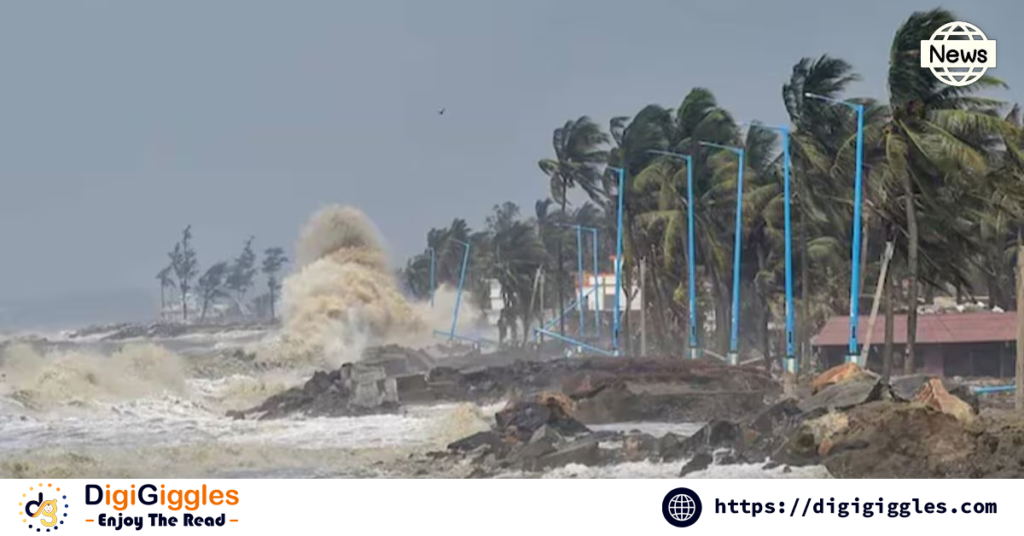
As Cyclone Dana intensifies in the Bay of Bengal, the coastal states of Odisha and West Bengal are bracing for its impact, expected within the next 48 hours. The Indian Meteorological Department (IMD) has issued warnings of heavy rainfall, strong winds, and potential flooding as the storm moves closer to land. In response, state authorities have initiated large-scale evacuation measures to protect residents in vulnerable areas, while schools and other public institutions have been shut down in anticipation of the cyclone’s landfall.
Mass Evacuations Underway
Both Odisha and Bengal governments have started evacuation efforts across low-lying coastal regions, which are most at risk from the storm surge and flooding. Thousands of people from vulnerable areas, especially those living near the coastline, have already been moved to safer locations. Emergency shelters have been set up to house the evacuated families, and relief supplies such as food, water, and medical aid are being stocked up to manage any crisis that arises post-cyclone. Odisha’s Special Relief Commissioner, Pradeep Jena, stated, “Our teams are working around the clock to ensure minimal loss of life. The government is coordinating with local agencies to expedite the evacuation process. We urge residents to follow safety protocols and avoid venturing out unnecessarily.” Meanwhile, in Bengal, Chief Minister Mamata Banerjee held an emergency meeting, directing state officials to be on high alert. She assured that relief and rescue teams are stationed across the state to handle any situation that may emerge once the cyclone makes landfall.
Schools Closed, Transport Services Affected
As a precautionary measure, schools in several districts of both states have been closed to prevent students from being caught in the storm. The authorities have also issued advisories for the suspension of local transportation services, including buses, trains, and ferry services along the coastal belt, until further notice. Additionally, fishermen have been advised to return to shore and refrain from venturing out into the sea. The IMD has warned of waves reaching dangerous heights, making it extremely perilous for those on fishing boats or ships near the cyclone’s path.
IMD Issues Red Alert
The IMD has classified Cyclone Dana as a “very severe cyclonic storm,” predicting wind speeds of up to 120 km/h during landfall, accompanied by torrential rain. The department has issued a red alert for several districts, indicating the possibility of flash floods and damage to infrastructure, including roads, bridges, and communication networks. The cyclone is expected to have the most severe impact on the coastal districts of Balasore, Bhadrak, and Puri in Odisha, and the East Midnapore and South 24 Parganas regions in West Bengal. Both states are also preparing for widespread power outages as strong winds could bring down power lines and damage electrical grids.
Relief Teams and Rescue Operations on Standby
In preparation for the cyclone’s impact, the National Disaster Response Force (NDRF) and State Disaster Response Force (SDRF) have deployed teams to the affected regions. These teams are equipped with rescue boats, medical kits, and essential supplies. Additional forces are being mobilized to ensure that any post-cyclone relief efforts are carried out efficiently. Local authorities have set up helplines to assist residents with emergencies, and social media platforms are being used to disseminate real-time updates about the cyclone’s progression and necessary safety measures.
Final Preparations as Dana Approaches
As Cyclone Dana nears landfall, the central and state governments are in constant coordination to ensure that all necessary resources are available. While the storm poses a significant threat to life and property, officials are optimistic that the proactive evacuation efforts and readiness of disaster management teams will help mitigate the damage. Residents in the cyclone-prone areas are advised to remain indoors and keep emergency supplies on hand, including flashlights, batteries, and water.